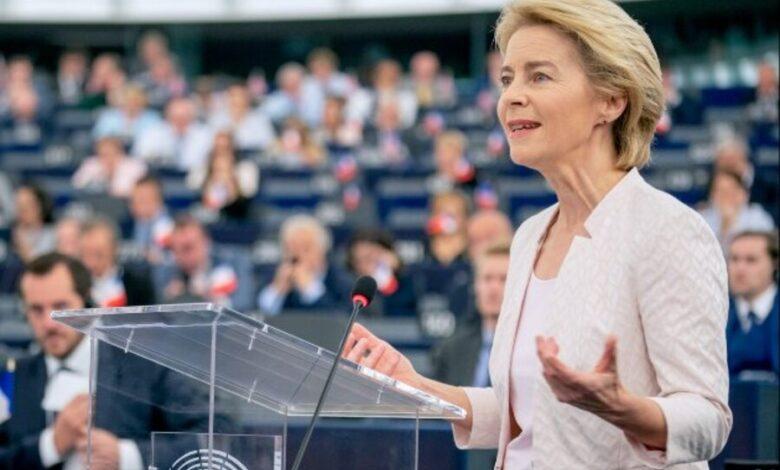The vote that didn’t happen: how European media are commenting on the attempt to remove the head of the European Commission

The proposal to introduce a vote of no confidence in the head of the European Commission, Ursula von der Leyen, initiated by far-right deputies, not only did not pass, but suffered a spectacular defeat. A total of 175 deputies supported it, while more than 400 voted against it. The attempt to eliminate von der Leyen failed even before the final count, but the resonance of this event went far beyond the boundaries of the session hall. The European media immediately reacted to the vote, and the tone of their comments reveals not only the political landscape of the EU, but also the expectations from the second mandate of the head of the Commission. For some, this is a confirmation of its power, for others, it is a symptom of a deeper split.
Večer (Slovenia): populists chose the most convenient target
The Ljubljana newspaper Večer draws attention to the weakness of the arguments of the authors of the vote:
“Ursula von der Leyen can make a lot of well-founded claims: failed management, difficult situation with farmers, inability to have a constructive dialogue with Donald Trump, excessive militarization, support for Israel, demagoguery in the attitude towards Ukraine. However, instead of deep and systematic accusations, populists grabbed the first thing that happened — the topic of COVID-19.
Why spend on arguments when you can resort to the usual clichés? Yes, even on the key issue, von der Leyen has to give an explanation, in particular regarding the scandal with Pfizer. But if the goal was to remove her from her position, then the authors of the initiative should have worked more seriously on the evidence base.”
Kurier (Austria): the vote played in her hand
The Austrian publication Kurier considers the situation from the position of political benefit for von der Leyen:
“The scandal, which was suddenly inflated out of nothing, disappeared just as quickly. The vote of no confidence against Ursula von der Leyen failed — and, paradoxically, strengthened her position. This is exactly what she was striving for after her re-election. All threads of political power are in her hands not only within the European Commission — the largest faction in the European Parliament, the European People’s Party, sets the pace today, and she stands behind it.”
Lidové noviny (Czech Republic): the future is controversial and uncertain
Prague’s Lidové noviny warns against premature complacency:
“Despite the fact that the vote did not pass, the policy of the future European Commission looks increasingly contradictory. A “both ours and yours” type strategy is expected, which will affect the budget, environmental policy, and climate goals. Trying to please everyone will lead to decisions that may cause new waves of resistance. It is practically impossible to build a stable majority – left or right – in this parliament. And therefore, the future remains unpredictable.”
taz (Germany): democracy’s weakness, not its triumph
The Berlin taz critically evaluates the political system itself:
“The problem – Ursula von der Leyen – has not gone away. As a CDU politician, she rules the European Commission like a queen. None of her pre-election promises — peace in Ukraine, “green” economic development, an honest deal with Trump — were implemented. And instead of drawing conclusions and rebuffing her, the center-left forces once again allowed themselves to be outwitted. The European Parliament lost an opportunity to demonstrate principles and deserve respect. This can hardly be considered the star hour of democracy – rather, another proof of its vulnerability.”
La Repubblica (Italy): confusion within the conservative camp
La Repubblica analyzes the actions of the “Brothers of Italy” party, which initiated the vote through its ECR faction:
“The positions of Ursula von der Leyen have shaken, as has the authority of the conservative-socialist-liberal majority that supports her. The European People’s Party and EKR suffered a special blow — the latter was split. “Brothers of Italy” announced that they would vote against the vote, but actually abstained. As a result: 360 deputies voted “against”, 175 – “for”, another 18 – abstained. And although the result was predictable, the plenary hall in Strasbourg was left empty – not so much physically as politically.”





